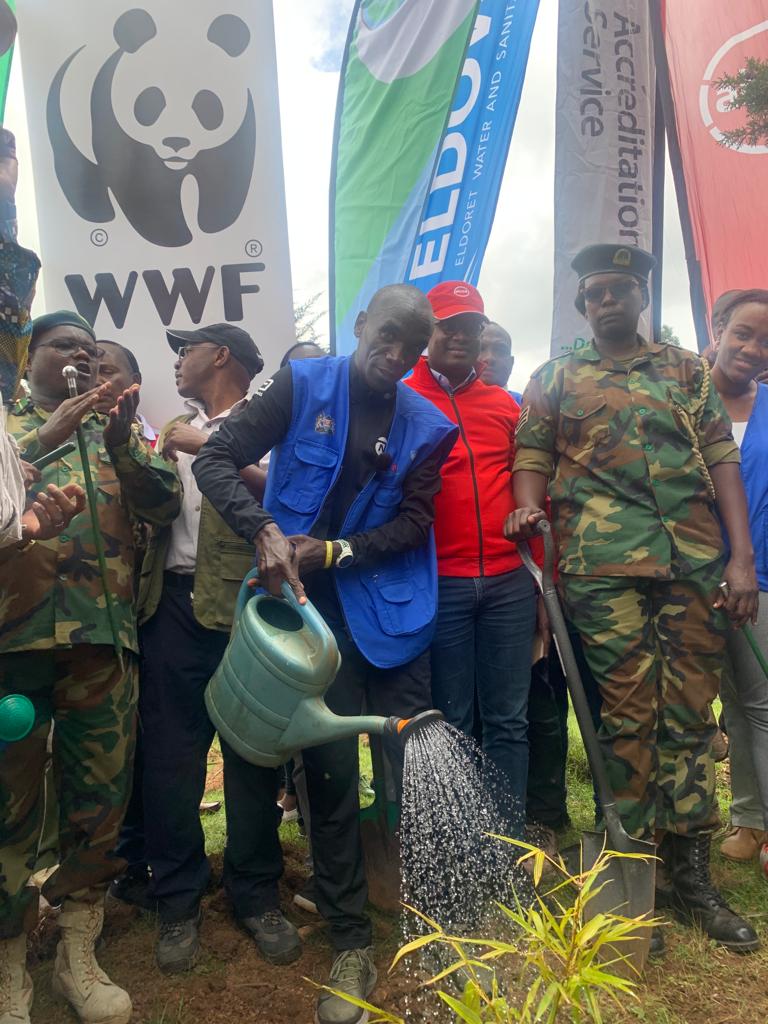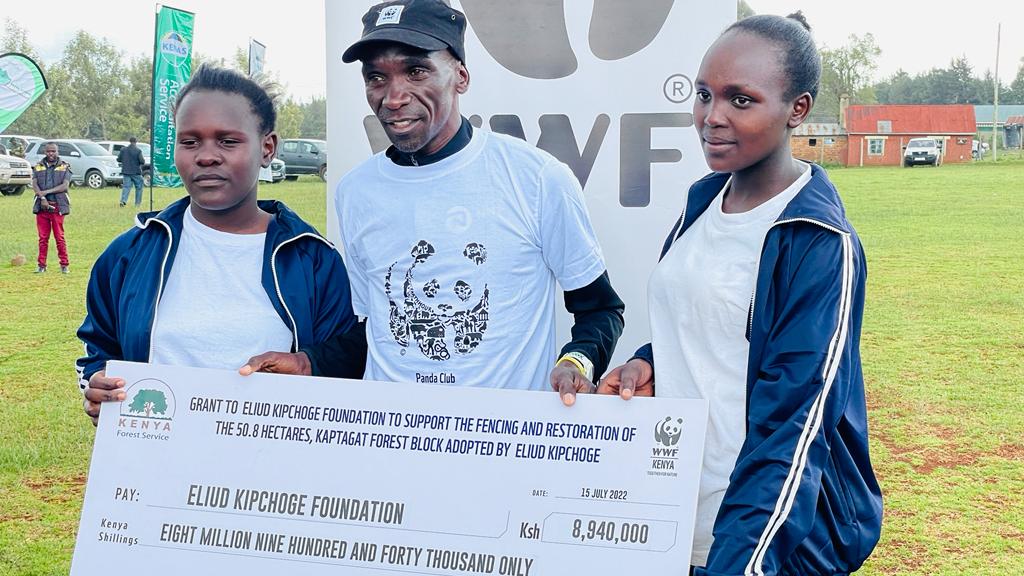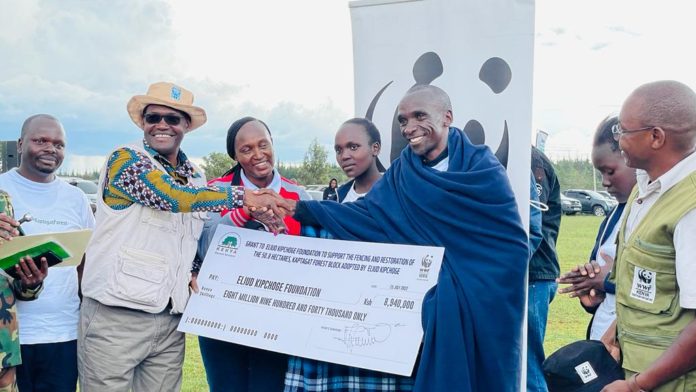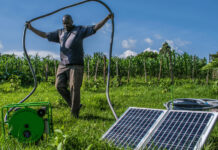By Liz Anyango
Elgeyo Marakwet, Kenya: World Marathon Champion Eliud Kipchoge on Friday led conservationists and environmental enthusiasts in a tree planting drive during the 6th edition of annual tree planting in Kaptagat Forest, in Kenya’s north rift in a bid to rehabilitate 50.8 hectares of degraded parts of the expansive watershed.
More than 250,000 seedlings were planted across different blocks of the forest namely Kaptagat, pennon, Sabor, Kessup and Kipkabus.
In 2019, the marathoner signed an MoU with Kenya Forest Service (KFS) to adopt 50.8 hectares of Kaptagat forest. Under the MoU, Eliud Kipchoge was to rehabilitate and restore the degraded site and later develop the site by establishing a training track to promote ecotourism.

Speaking while presiding over the drive, Kipchoge noted that conserving the forest was crucial in addressing climate change and protecting sources of water that are drying up by the day.
“This program has rehabilitated over 400 Ha. In order to do more and move faster, we have to hold hands with individuals and organizations. When you adopt a forest you secure the legacy of our children, their children, and the children’s children. We look forward to many of you taking a step to adopt a forest” says Kipchoge.
This comes as reports indicate that Kaptagat forest had over 2,000 ha of degraded forest areas six years ago. However, since the commencement of the annual Kaptagat forest tree planting six years ago, over 1,277 ha have been rehabilitated.
Speaking while presiding over the event, The chief guest, Principal Secretary Ministry of Environment and Forestry, Dr. Chris Kiptoo urged the community to protect the forest and grow trees for their benefit.
Kiptoo firmly stated that Kenya’s forest cover now stands at 8.83 percent from 6.99 percent in 2010 citing the newly released National Forest Resources Assessment Report announced by the president in May 2022.
Since Kaptagat Forest is a unique ecosystem where people, nature, and the economy interconnect its conservation remains critical, WWF-Kenya which is one of the leading conservation organizations in the country, through the UK-Pact and Trillion trees and WWF-UK donated Kshs 8,940,000 million to the Eliud Kipchoge Foundation to facilitate the fencing as well as restoration of the adopted 50.8 hectares.
Speaking to Talk Africa, WWF conservation director Jackson Kiplagat said that the funding is one of the strategies set to supplement the governments’ efforts to increase Kenya’s forest cover from the current 6.9 percent to the set constitutional threshold of 10 percent hence the ongoing 3-year-old partnership between the organization and Kipchoge.

“This year we have supported about 130 ha including the 50.8 ha adopted by Eliud and we are happy to work with the government and other stakeholders in supporting environmental conservation and mitigation of climate change.”
Still, with this funding, Kenya Forest Service Senior Forester explains that Kipchoge is creating a training truck in Iten to pave way for athletes to train in the area.
“Iten has a good climate and fresh air that is conducive for training. Both local and international athletes train in high altitude areas where there is low oxygen.”
Guya further stated that Kaptagat has proven to be resourceful not only for the athletes but also, for the country and the region.
“We have streams and tributaries feeding the rivers passing through the ecosystem among them Kipsinende, Kapkei, Naiberi, and Eldoret stream that joins river Sosiani and drains into Lake Victoria, “
Guya said that the Community Forest Association, composed of locals adjacent to the resource and registered under the Society’s Act, is also benefiting from the forest resource, owing to the Forest Conservation and Management Act 2016 which allows user rights for community forest association.
“They enjoy privileges such as water abstraction, collection of herbs for medicine, firewood, research and education, cultural benefits such as circumcision sites, beekeeping, and plantation establishment livelihood improvement system also known as (PELIS) and ecotourism.”
According to Guya, the achievement of these targets was due to collaborative efforts between different stakeholders.
Friday’s tree-planting exercise was therefore a succession since it has attracted a cross-section of stakeholders, including county governments, Eliud Kipchoge Foundation, various state agencies, higher learning institutions, the private sector, and Community Forest Associations among others.














